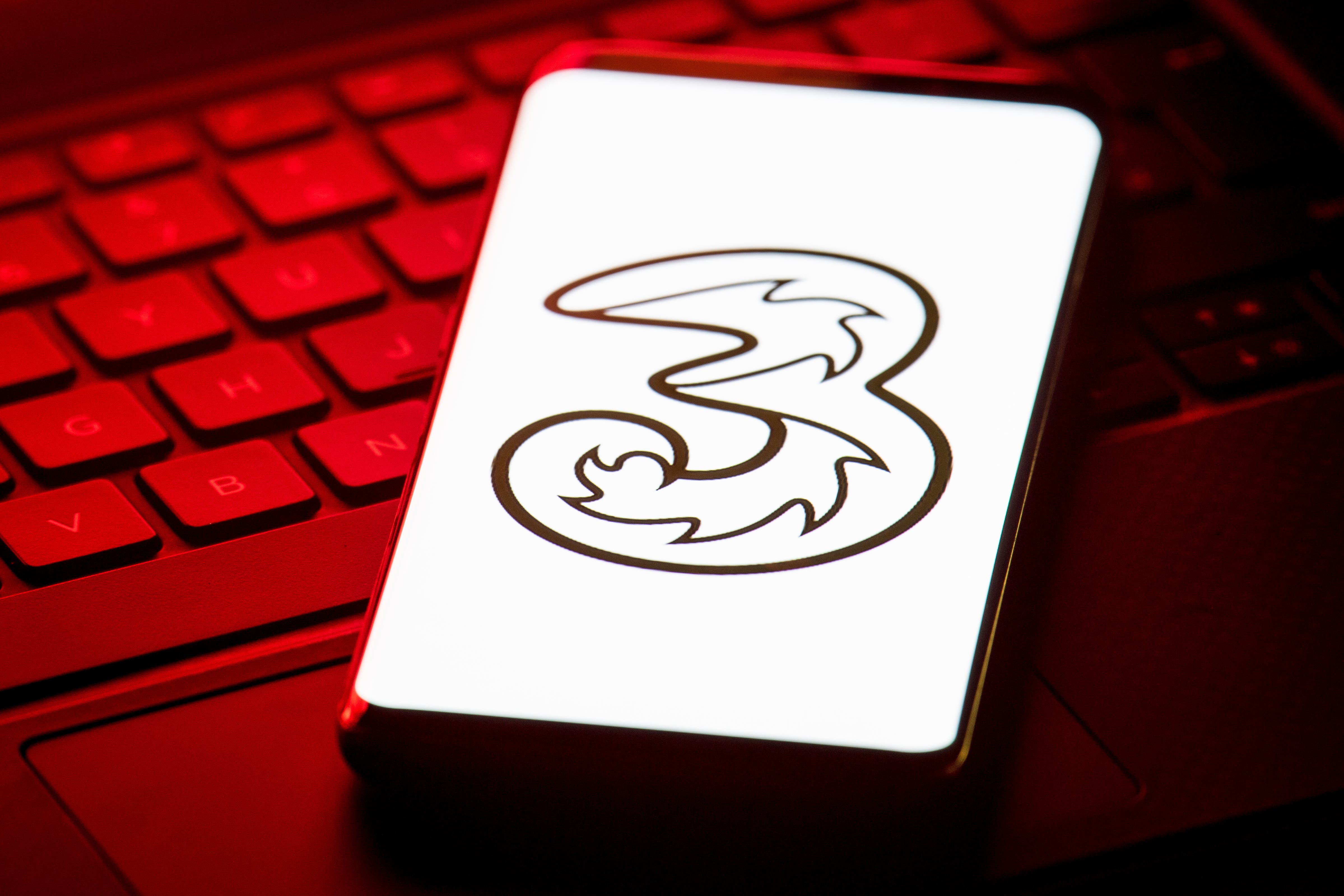Three UK looks to £15bn Vodafone megamerger amid ‘unsustainable’ investment cost
The tie-up is yet to be cleared by regulators, as Three continues making losses amid ‘escalating inflationary costs’.

The mobile network Three UK continued to make a loss in the first half of the year as it called investing in its network “unsustainable”, ahead of its planned merger with Vodafone.
Three said pre-tax losses narrowed to £30 million for the six months to June 30, an improvement on a £76 million loss at the same time last year.
The loss was driven by the growing cost of running and improving its network of mobile phone towers and digital infrastructure, which it put down to inflation.
Vodafone and Three hope to complete a tie-up, after the two companies agreed a £15 billion deal last summer which would create the UK’s largest mobile phone network.
The deal has not yet got the green light to go ahead, however, after attracting concerns from regulators.
Three’s losses come despite the company managing to grow its customer base by 3% versus last year, bringing it to 10.9 million people.
The growth came mainly across its cut-price mobile network Smarty, plus its broadband offerings for home and business customers, boosting revenue by 9% to £1.3 million.
Chief executive Robert Finnegan said the loss was because of the “escalating inflationary costs of operating our network”.
He added: “Our cashflows have been negative since 2020 and our costs have almost doubled in five years, meaning investment in network is unsustainable.
“UK mobile networks rank an abysmal 22nd out of 25 in Europe on 5G speeds and availability, with the dysfunctional structure of the market denying us the ability to invest sustainably to fix this situation.”
“Our merger with Vodafone will unlock £11bn worth of investment in digital infrastructure, creating a best-in-class 5G network for the UK and helping to grow the UK economy.”
Mr Finnegan will have to wait longer to find out if the merger will go ahead, as the Competition and Markets Authority (CMA) scrutinises the deal.
If it goes ahead, the merger would reduce the number of mobile networks in Britain from four to three. The others are EE and O2.
In an update published on August 2, the CMA said it was giving itself until December 7 to complete the probe and publish its findings.
The extension reflects the “very wide scope” of the inquiry and the “technical and regulatory complexity of the sector”, the watchdog said.
Bookmark popover
Removed from bookmarks